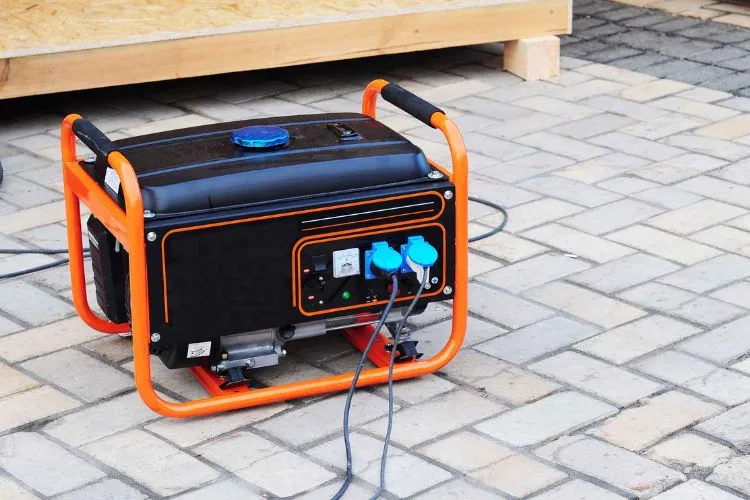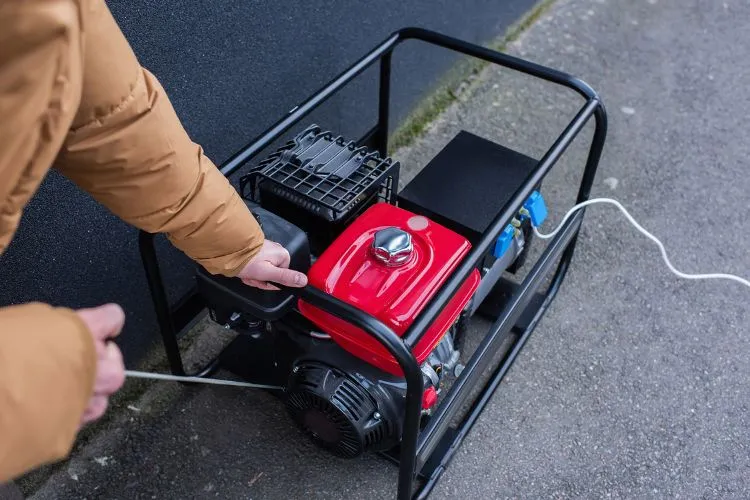Electric generators are indispensable in providing power during outages, ensuring that homes and businesses continue to operate smoothly.
This article elaborately discusses how long do electric generators last, offers maintenance tips, and identifies signs indicating that your generator may require repair or replacement.

Introduction to Electric Generators
Electric generators play a pivotal role in converting mechanical energy into electrical power. This section delves into the types, key components, and functions of electric generators.
Types of Electric Generators
Electric generators are categorized based on their application and design.
Portable generators are known for their lightweight and temporary power solutions, making them perfect for camping or small outdoor events.
Standby generators, on the other hand, offer a permanent power backup solution for homes and businesses, automatically powering on during outages.
Inverter generators specialize in producing clean energy, ideal for powering sensitive electronic devices.
Key Components and Their Functions
At the core of a generator is the engine, which propels the alternator to generate electricity. The fuel system fuels the engine with gas, diesel, or propane, depending on the generator’s design.
To prevent overheating, generators are equipped with cooling and exhaust systems, while the lubrication system reduces wear and tear by minimizing friction.
Lastly, the control panel provides easy operation of the generator, allowing users to start, stop, and monitor its performance.
How Long Do Electric Generators Last?
The longevity of electric generators is influenced by several key factors, which are vital to understand for anyone looking to maximize their investment in a generator.
Quality and Brand
The adage “You get what you pay for” is particularly true for electric generators. High-quality generators manufactured by reputable brands are generally more durable and reliable, offering better long-term performance compared to cheaper alternatives.
Usage Intensity
The frequency and intensity of usage play a significant role in determining a generator’s lifespan. Generators used continuously or under heavy loads are likely to wear out faster than those used sporadically or for light loads.
Environment and Storage Conditions
The environment where a generator is stored and operated can have a profound impact on its lifespan. Generators kept in clean, dry, and temperate conditions are less likely to suffer from environmental damage such as rust and degradation of components.
Routine Maintenance and Timely Repairs
The importance of regular maintenance and timely repairs cannot be overstated. Adhering to a consistent maintenance schedule, including oil changes, filter replacements, and general inspections, can substantially extend a generator’s working life.
Understanding the Average Lifespan of Electric Generators

While the lifespan of electric generators can vary widely based on the aforementioned factors, there are general guidelines regarding their longevity.
Portable generators typically offer a lifespan of 1,000 to 2,000 hours of operation, making them suitable for temporary or occasional use.
Standby and inverter generators, designed for more regular or even continuous use, can last significantly longer, often up to 3,000 hours or more with proper maintenance.
Prolonging Your Electric Generator’s Lifespan
Extending the life of your electric generator involves a combination of proper maintenance, storage, and usage practices.
Regular Maintenance
Adhering to a regular maintenance routine is crucial. This includes checking and changing the oil regularly, replacing air and fuel filters, and ensuring all components are in good working condition.
Proper Storage
Storing your generator in a clean, dry, and ideally climate-controlled environment can protect it from the elements and prolong its usable life.
Professional Inspections
Having a professional inspect your generator annually can help catch and correct small issues before they become major problems. This preventive approach can be instrumental in extending the lifespan of your generator.
When to Repair or Replace Your Electric Generator
Identifying when your generator needs repair or outright replacement is key to maintaining its efficiency and reliability.
Unusual noises, difficulty starting, decreasing power output, and visible wear or damage are all signs that your generator may need attention. It’s important to address these signs promptly to avoid more costly repairs or replacement down the line.
You may also find useful: How Long Do Diesel Generators Last? The Real Lifespan
Professional Tips for Generator Users

When selecting a generator, it’s essential to carefully consider your energy requirements and match them against the generator’s capacity and specific design features.
Choosing a generator from a reputable brand is vital as it could greatly influence reliability, efficiency, and the availability of spare parts, saving you both time and additional expenses in the long run.
It’s also important to manage the operating load efficiently. Constantly running a generator at its maximum capacity can lead to quicker wear and tear and might shorten its lifespan.
Instead, aim to use the generator within 70-80% of its maximum capacity to ensure it remains in good working condition over time.
Frequently Asked Questions (FAQs)
What is the average cost of maintaining an electric generator annually?
The annual maintenance cost of an electric generator can vary significantly based on type, usage, and the frequency of professional services, ranging from $100 to $600.
Can the lifespan of an electric generator be extended?
Absolutely. Through diligent maintenance, proper storage, and scheduling timely repairs, the operational lifespan of your generator can be significantly extended.
What are the tell-tale signs my electric generator needs attention?
Key indicators include unusual noises during operation, difficulty starting, decreased efficiency, and visible physical damage.
How often should my electric generator be professionally inspected?
An annual inspection by a professional is recommended, although more frequent checks may be necessary based on usage patterns and environmental conditions.
Is it more economical to repair an old generator or invest in a new one?
This decision largely depends on the extent of repairs needed and the age of your generator. In some cases, particularly when repair costs are high, and the generator is nearing the end of its expected lifespan, investing in a new one may be more cost-effective.
Conclusion:
Electric generators are a critical backup power source for many households and businesses.
Understanding the factors that affect their lifespan, alongside adhering to proper maintenance and usage practices, can help ensure your generator remains a reliable power source for years to come.
